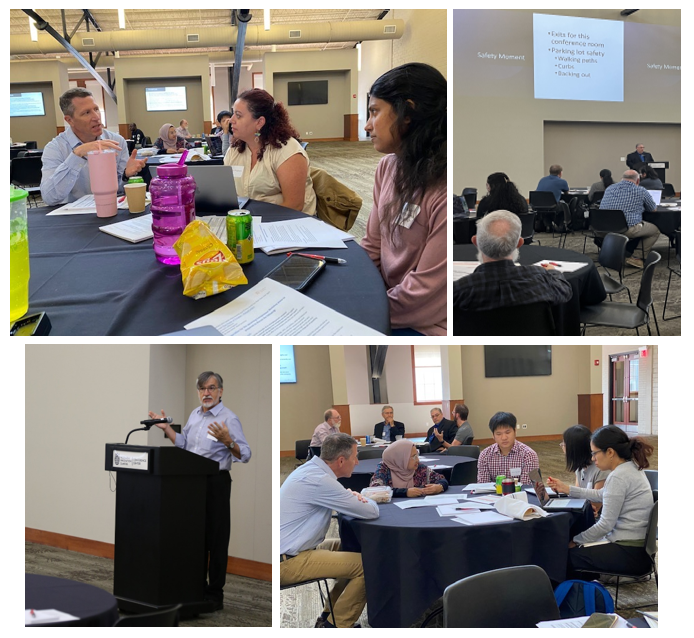
STEM researchers are experts in their respective fields of inquiry, but it’s not always obvious how to transform groundbreaking research into a thriving startup. To make the process more apparent, the Nebraska Center for Energy Sciences Research (NCESR), in partnership with NUtech Ventures, Innosphere Ventures and the Nebraska Public Power District (NPPD), held a day-long workshop devoted to the subject on September 6.
Dr. George Gogos, NCESR director gave a welcome to kick off the workshop. He said, “We are all here because the leadership of NPPD and UNL came together in 2006 and established NCESR. In addition to research on renewable and other clean forms of energy, energy efficiency and carbon capture, the center supports many other activities. Today, we are here to deliver, with great help from our partners, a workshop that will expand UNL STEM researchers’ entrepreneurship knowledge.” Roman Estrada, NPPD generation research sr. program manager and NCESR liaison presented an overview of NPPD’s role in Nebraska, collaboration with NCESR, NPPD’s areas of interest for future entrepreneurship opportunities and how NPPD supports entrepreneurship development.
“An early-stage startup’s customer value proposition is the most important of the four opportunity elements,” said Mike Freeman, chief executive officer of Innosphere Ventures, which supports founders who are building high-growth science and technology companies. “Needs must be strong, and market differentiation is essential. To survive, a startup must be able to fulfill its value promise, which includes inventing the product, building it, physically delivering it, and servicing after it is sold. Poor execution on any of these tasks can kill a venture.”
Only a small percentage of startup companies ever make it to $1M revenue, noted Tim Jones, chief operating officer of Innosphere Ventures. “The single biggest root cause is lack of product/market fit,” he added. “More startups fail from a lack of customers than from a product development failure.”
Prior to forming a startup or before any enabling public disclosure is made, an invention should be formally disclosed to NUtech Ventures, noted Jeewan Jyot, director of licensing for NUtech Ventures. Typically, following the evaluation of the potential invention, NUtech Ventures will file an initial patent application that subsequently may be exclusively licensed by the startup. Further, the licensee may provide input for the prosecution of the patent(s). This process results in the startup being able to pursue a path to develop the technology for commercial use.
“We’re highly motivated to partner with our talented researchers move their innovations from the lab to the marketplace,” said Brad Roth, executive director of NUtech Ventures. “We encourage faculty, staff and students to get in touch early with NUtech Ventures, work with us to protect intellectual property, and take advantage of entrepreneurship programs like our Nebraska I-Corps: Introduction to Customer Discovery program. If a startup company is a logical next step, NUtech will work with the researchers to facilitate the process.”
The Nebraska I-Corps program teaches aspiring entrepreneurs about value propositions, stakeholder ecosystems, interviewing prospective customers, and more. Participants interview people in their fields and learn which problems are important to them — and then consider what that means for potential business ideas. The next six-week session begins Monday, September 25.
The workshop speakers also discussed different sources of business funding, including venture capital, professionally managed funds invested for a high rate of return; angel investors, who are accredited investors who invest in the early stages of the business, and family office investors, private wealth management advisory firms that serve high net worth investors.
The day was capped with a networking session including a number of organizations within the Nebraska startup community and several university founders.